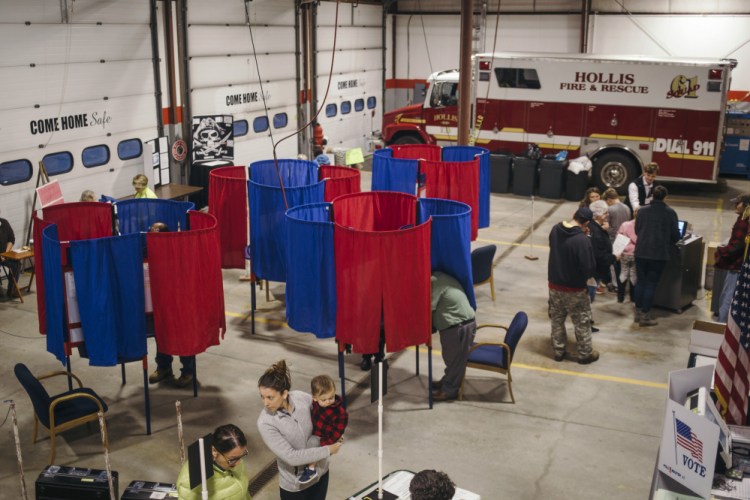What, exactly, is wrong with Maine’s system of citizen-initiated referendums?
Worried about the sheer number of initiatives put before voters, the difficulty of dictating policy through the ballot box, and the system’s vulnerability to well-financed outside influence, lawmakers have struggled with that question.
This session’s first attempt at an answer, through a proposal from Secretary of State Matthew Dunlap, gets them no closer to a solution.
Dunlap’s bill, L.D. 1726, includes a provision that would ban the gathering of signatures from within 50 feet of the entrance to a polling place, and would require a 50-foot activity-free pathway from parking areas or drop-off points to the entrance of polling places.
Dunlap says these signature-gatherers can be intimidating and disruptive, and that he is merely protecting voters and the municipal clerks who run polling places.
He is overstating the case, to say the least. As the secretary of state himself has pointed out, Maine elections are notable for how well they are run, and for how many voters participate. Petitioners generally are respectful and clear on where their boundaries lie.
The same cannot be said of the York County casino campaign, which culminated in a historic loss Nov. 7. Campaign organizers gathered signatures on the street using well-paid workers, some of whom employed misleading tactics to convince voters to sign.
And that’s the problem with Dunlap’s proposal – whatever its purpose, banning petitioners from the polls would harm the ability of Maine residents to participate in direct democracy while doing nothing to keep well-funded out-of-state campaigns from targeting our state. It would hinder the ability of Maine residents to respond when the Legislature doesn’t, say, raise the minimum wage, expand Medicaid or increase school funding – all things approved by voters after years of legislative gridlock – but it would do nothing to keep a casino developer with millions of dollars to spare from buying his way onto the ballot.
Gathering signatures at the polls is critical to the success of true citizen-led initiatives – there is no other time when so many registered voters are gathered in one place at the same time. Campaigns run largely with volunteer help can’t afford to seek voters out solely on the street.
But Shawn Scott can. Leading the casino campaign, he paid workers up to $17 a signature, a previously unheard-of rate.
In that and other ways, Scott’s campaign made a mockery of the citizen initiative. If lawmakers are looking for what’s wrong with the process, they should start there.
Send questions/comments to the editors.



Comments are no longer available on this story